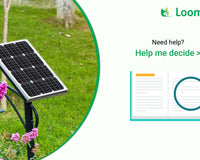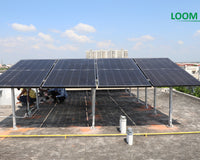For the majority of homes, an on-grid solar system is typically the most suitable and cost-effective choice. Here are a few reasons why on-grid systems are generally recommended for residential applications:
Cost-Effectiveness: On-grid systems are generally less expensive than off-grid systems because they do not require the installation and maintenance of costly energy storage systems, such as batteries.
Net Metering: Many regions offer net metering programs for on-grid systems. Net metering allows you to feed excess electricity generated by your solar panels back into the grid, earning you credits or reducing your electricity bills. This makes on-grid systems financially advantageous, as you can offset your electricity consumption with the surplus energy you generate.
Reliability and Grid Backup: With an on-grid system, you have a reliable source of electricity from the grid as a backup when your solar panels are not producing enough power. This ensures a constant power supply, eliminating the risk of power outages or disruptions that can owith off-grid systems if energy storage is insufficient.
While off-grid solar systems can be suitable for specific situations, such as remote locations without access to the grid or for those seeking complete energy independence as it has solar battery for power backup solution at night or an emergency time. They are generally less practical and cost-effective for the average residential home. On-grid systems provide a reliable and cost-efficient way to generate clean energy while still having the convenience of grid backup when needed its helpfull for reduce electricity bills.
It's always recommended to consult with a professional solar installer who can assess your specific needs, location, and energy requirements to provide personalized recommendations for your home.












